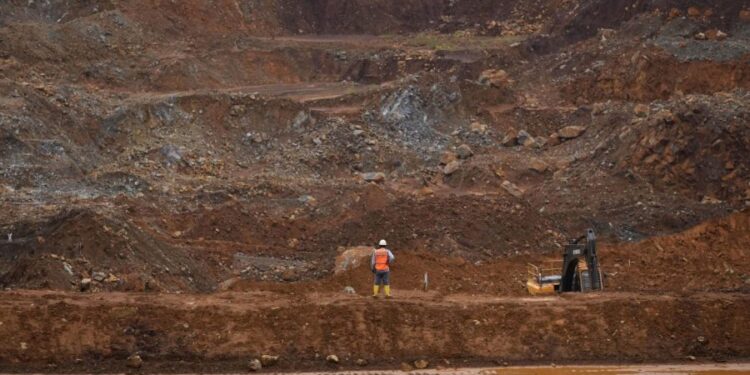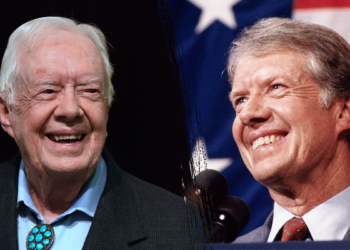
The federal government is launching an initiative to support foreign minerals projects that exclude China as part of an effort to bolster U.S. supply chains.
The Export-Import Bank (EXIM), a federal agency that helps finance private projects, voted to approve an initiative that funds foreign projects that supply minerals that will ultimately be used in the U.S.
The initiative explicitly excludes Chinese projects — given China’s dominance in the minerals marketplace. China is a key hub for minerals production and processing, and is responsible for 90 percent of the world’s refining of rare earth elements.
“Through this creative new financing tool, EXIM will provide U.S. businesses access to critical resources, reduce reliance on [China]-controlled supply chains, and foster a stronger, more resilient domestic manufacturing base,” said EXIM President and Chair Reta Jo Lewis in a written statement.
In recent days, China said it would ban the export of certain minerals to the U.S. including gallium, germanium, antimony, which have potential military applications.
While the Export-Import Bank can already fund mining projects, a senior official said the goal of the new initiative will help direct money to projects that wouldn’t typically have enough exports to the U.S. to get financing from the bank.
Minerals are a key aspect of the U.S.’s security, technology and climate goals and are used in semiconductors that power weapons, low-carbon energy sources and other technology.
For all of these reasons, bipartisan officials have raised concerns about China’s grip on mineral supply chains.
While the incoming Trump administration is expected to undercut climate efforts, it may still be interested in boosting U.S. mineral supply chains to accomplish other goals — though it is also likely to promote domestic mining.
New initiatives related to investments in critical minerals have been popping up in other areas of the federal government in recent months.
In October, National Security Adviser Jake Sullivan announced a new critical minerals marketplace with U.S. allies to pull capacity on mineral processing and refinement away from China.
While the proposed financing facility from the Ex-Im bank is not directly connected to the White House initiative, greater price stability resulting from the cooperative marketplace could end up making Ex-Im debt financing more attractive to investors, one senior Ex-Im official told The Hill.
The person said that the market for minerals currently suffers from an “illusion of oversupply” created by companies that now dominate processing and extraction.
President Biden launched a review of US critical mineral supply chains during the first few weeks of his presidency. That preceded the passage of the Inflation Reduction Act in 2022, which made major investments in batteries and other environmentally focused technologies that depend heavily on minerals and metals.
In September, the administration announced other significant investments in battery material and mineral processing enabled by the Infrastructure Investment and Jobs Act as well as tariffs on magnets.
The House Select Committee on the Chinese Communist Party established a critical minerals working group in June and introduced two bills in December.
One would focus on geologic mapping and mineral resource assessment with partner governments and companies, and boost training in environmental and labor standards on material.
The other introduces a national interest waiver allowing foreign engineers to work full-time in the U.S. and aims to foster domestic expertise in the mineral industry.
The U.S. and Japan signed an agreement on critical minerals in 2023. The agreement included “circular economy approaches to reduce the demand for, and environmental impact of, virgin material extraction and related processes.”







